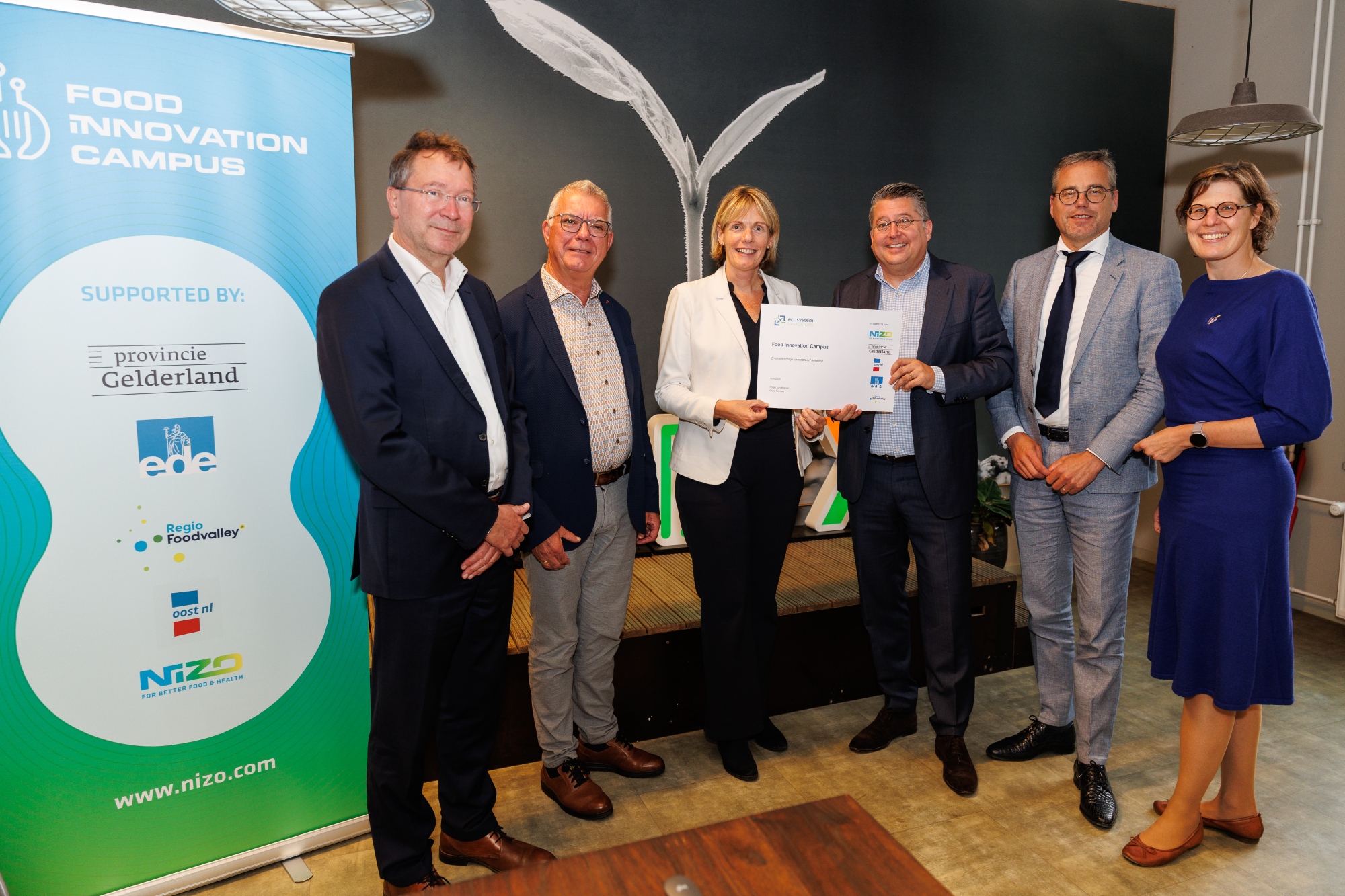

New food innovation park in Ede to position the Netherlands as Europe’s protein hub
The Dutch town of Ede is set to become the latest European hotspot for sustainable protein innovation, following plans to transform the existing NIZO site into a new food innovation park. Over the coming years, the site will be redeveloped into a collaborative center where start-ups, scale-ups, corporates, and research institutions work side by side to accelerate the protein transition and broader food innovation.
At the heart of the park are high-quality, open-access facilities, including NIZO’s food-grade pilot plant and the recently established Biotechnology Fermentation Factory (BFF). These facilities will support the critical step of scaling promising protein sources – such as plants, algae, and fermentation – into safe, edible, and market-ready products.
“Proteins are essential for health, but current reliance on meat and dairy comes with major demands on farmland, water, and energy,” the partners said in a joint statement. “The food innovation park will give innovators the ability to test, develop, and commercialize new sustainable sources of protein.”
The project is designed to complement Wageningen, home to Wageningen University & Research and the Wageningen Campus, which already serves as a hub for research, education, and start-ups. While Wageningen focuses on discovery and innovation, Ede will specialize in testing, scaling, and preparing products for market introduction.
Together with the Food Innovation District near Ede railway station, the two hubs form what organizers describe as a “strong triangle,” where knowledge, research, entrepreneurship, and production reinforce one another. This collaborative infrastructure is intended to put the FoodValley Region more firmly on the international map as a center for sustainable food development.
The food innovation park is being spearheaded by NIZO, the Province of Gelderland, the Municipality of Ede, the FoodValley Region, and Oost NL, the regional development agency. By pooling expertise and resources, the initiators hope to build a dynamic ecosystem that accelerates research, supports scale-up, and strengthens Europe’s food resilience.
“We are building a place where ideas can flourish faster, where entrepreneurship thrives, and where innovations contribute to a future-proof food system,” said Bert Fintelman, politically responsible for the Protein Transition theme in the FoodValley Region.
An exploratory study conducted earlier this year revealed broad support for the initiative. The report was presented on September 17 to representatives including Helga Witjes, Provincial Executive member for Economy and Innovation in Gelderland; Arnold Versteeg, Alderman for Economy for the Municipality of Ede; Maud Hulshof, Chair of the Economic Portfolio Holders’ Consultation for the FoodValley Region; and Fons de Zeeuw, International Director at Oost NL.
The next steps will focus on property development and building the park’s organizational infrastructure. One option under consideration is to spin off the pilot plant as an independent entity, ensuring it remains widely accessible to both companies and research institutions.
“Our goal is clear: to become Europe’s leading ecosystem for scaling alternative proteins and driving the food transition,” said Nikolaas Vles, CEO of NIZO. “By combining world-class facilities with collaboration across start-ups, scale-ups, companies, and research institutions, we can accelerate innovations to market and shape the future of food.”
By anchoring innovation and scale-up within a single ecosystem, the food innovation park in Ede is expected to play a pivotal role in advancing the protein transition not just in the Netherlands, but across Europe.
For the FoodValley Region, it represents an opportunity to further strengthen its international profile and attract companies and talent working on the next generation of food solutions.
Together with partners in Gelderland and beyond, the project aims to provide the infrastructure and collaboration needed to turn promising concepts into impactful products, ensuring that sustainable proteins play a central role in the global food system.
“The food innovation park will be the center where ideas grow into impactful innovations,” said Fintelman. “It’s about creating a healthy and sustainable food system that benefits both people and the planet.”
If you have any questions or would like to get in touch with us, please email info@futureofproteinproduction.com


-p-800.jpg)



